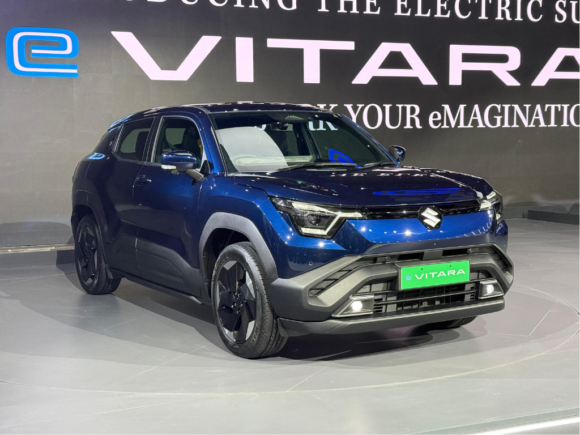Suzuki revises Maruti Suzuki sales and EV targets amid rising competition
Japanese automaker Suzuki Motor has revised its sales targets and electric vehicle strategy for India, its most significant market, reflecting the evolving competitive landscape and shifting consumer preferences. While the company aims to expand global sales to 4.2 million vehicles by fiscal year 2030, its outlook for India has been tempered.
Suzuki now anticipates selling 2.5 million vehicles in India by March 2031, a downward revision from its previous target of 3 million set in October 2023. The company has also scaled back its planned EV launches in the country from six to four models.
The adjustment comes as Maruti Suzuki, Suzuki’s Indian subsidiary, faces increasing competition from domestic players like Tata Motors and Mahindra. Both rivals have gained traction with feature-rich SUVs and electric offerings, while Maruti’s once-dominant position in the small car segment has eroded.
Maruti’s share of India’s passenger vehicle market has slipped to 41%, down from its peak of around 51% in March 2020. The company had initially aimed to reclaim a 50% market share by 2026 but now projects achieving that goal by 2031.
“The competitive environment is intensifying, and customers now expect higher-quality features, equipment, and services,” Suzuki noted in its updated five-year strategy.
Recognising the shift in consumer preference towards mid-sized SUVs, Suzuki plans to strengthen its SUV portfolio while expanding manufacturing capacity in India. The company aims to increase its annual production capacity from the current 2 million units to 4 million units, though the timeline for this expansion will depend on market conditions.
Despite the revised targets, India remains central to Suzuki’s global strategy. The country will receive 60% of the company’s planned ¥2 trillion (approximately $13 billion) investment by 2031. India is also set to become Suzuki’s global manufacturing hub for exports to markets such as the Middle East and Africa, including EV shipments.
Commenting on the global slowdown in EV sales, Suzuki President Toshihiro Suzuki highlighted the challenges associated with consumer adoption. “The sales of battery electric vehicles (BEVs) are facing headwinds, particularly in Europe. This underscores the importance of aligning new technologies with customer acceptance,” he said during a strategy briefing in Tokyo.
To navigate this transitional phase, Suzuki is adopting a diversified approach, advancing hybrid technologies alongside exploring bio-gas solutions. The company also set a target to achieve an operating profit margin of at least 10% by 2030, up from 9.2% in the previous fiscal year, with an overall revenue goal of ¥8 trillion, representing a 49% increase.
According to Gaurav Vangaal, an analyst at S&P Global, Suzuki’s revised strategy reflects a pragmatic response to the evolving market dynamics and the global reassessment of EV adoption timelines.
While Suzuki’s recalibrated outlook underscores the challenges posed by competition and changing consumer trends, it also reaffirms the company’s commitment to India as a cornerstone of its long-term growth strategy.

